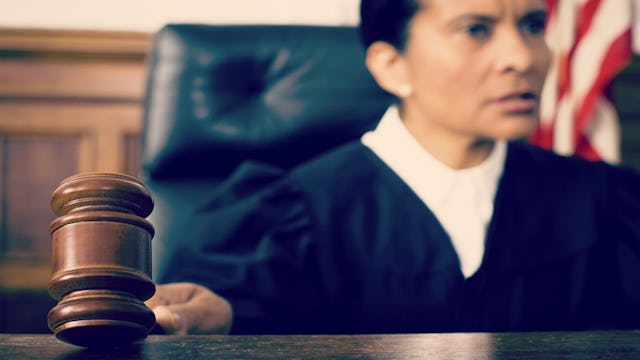Why You Can't Name Your Kid Zoё, And Other Weird U.S. Baby Naming Laws

When it comes to choosing baby names, U.S. citizens have a lot of leeway. In keeping with the “it’s a free country” theme, we get to name our babies pretty much whatever we want … within reason.
But much like we can’t hang out at McDonald’s naked, we’re not allowed to subject our children to certain names.
Like … André.
RELATED: Yes, My Kids Have Weird Names — So What?
I know what you’re thinking: There’s absolutely nothing wrong with the name André. And you’re right – so why does the government insist that it can’t go on a birth certificate?
Actually, it’s mostly computers – not bureaucratic assholery – to blame for much of the restriction around baby naming. Simply put, many governmental computer systems are unable to read special characters such as umlauts (those two little dots above certain vowels) and other accent marks. So a person named Zoё, for example, could potentially run into trouble with license bureaus and vital records departments and airline ticketing counters. As if we don’t have enough trouble with these things as it is.
Not every state has such restrictions; Oregon’s computer systems recognize “unusual” characters including â, é, î, õ and ü, and Kansas allows diacritical marks. So if you live in Kansas, you can have an André – but if you live in California, where diacritical marks are banned, it isn’t an option.
Luckily, though, even in the states where special characters are prohibited, the informal use of these marks isn’t frowned upon. So while the “official” birth certificate/passport version has to be Zoe, the everyday version (that most people will use) can still be Zoё.
In Connecticut, Nevada, and Michigan, it’s technically legal to not name your baby at all. Although not having a legal name will really throw a wrench in your child’s plans to, say, get a job or vote or do basically anything else involved with everyday life.
But even if you haven’t decided on a name by the time you leave with hospital with your brand-new bundle, that’s fine. A famous (yet admittedly extreme) example of this in action is Olympic skier Picabo Street, whose parents declined to name her at birth and simply called her “Baby Girl” until, at age three, passport requirements for an upcoming trip out of the country forced them to give her (and her little brother, Baby Boy) an official name.
A few states, such as Kentucky, grant parents basically unrestricted rights to name babies whatever the hell they want. They would likely frown upon naming your kid something like “Fuckwad,” since obscene, derogatory, or inflammatory names are vetoed in the majority of places, even if they aren’t explicitly prohibited – but I guess if you wanted to use that name (please, no) then Kentucky would be the place to try it out. But something tamer, like Toehair, would be okay (um, yay?).
As a rule of thumb, even if you live in a state with “unrestricted” naming laws, you probably can’t use a name that wouldn’t be allowed on, say, a personalized license plate.
Speaking of license plates, what about numbers? They’re allowed in some states, but not others. In Ohio, James Michael Green the third would have to be James Michael Green III, not James Michael Green the 3rd. But in Illinois, you could name your daughter K8ie and they’d shrug and be like, “Okay.”
If you want to play it safe, no matter where you live, stick to non-offensive, non-trademarked names with characters (as in letters) that can be found on a standard English keyboard. Then you can ensure your offspring will have a relatively hassle-free existence where their name is concerned.
That is, unless you’re trying to name them Boozecruise or something. At the very least, they’ll never find it on a personalized key chain.
Naming a baby can be scary. We can help! Check out our comprehensive baby name database and fun lists here.
This article was originally published on